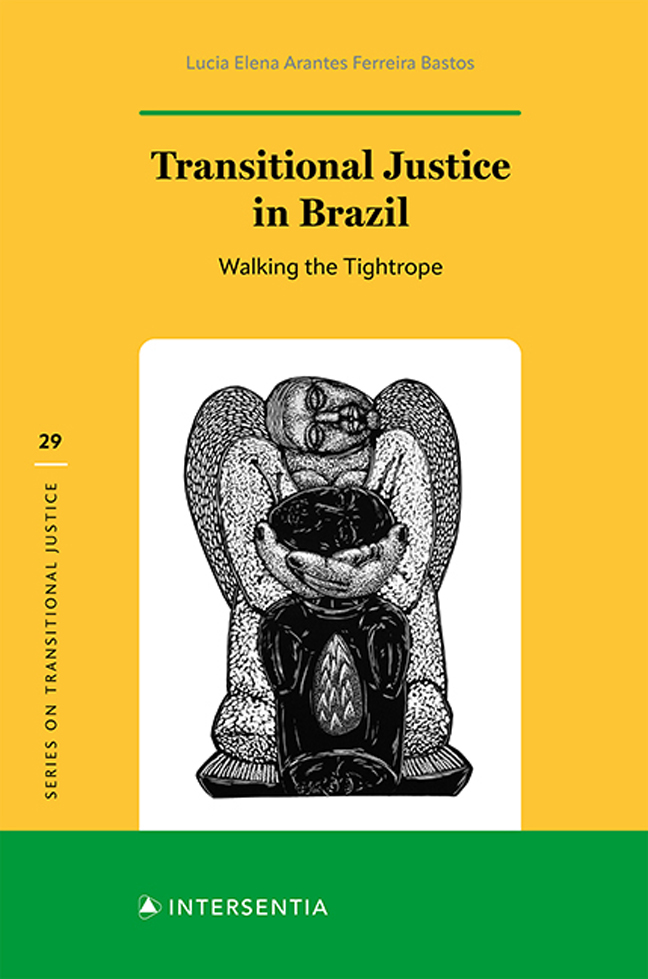Book contents
- Frontmatter
- Foreword
- Acknowledgments
- Contents
- List of Acronyms and Abbreviations
- 1 Introduction: Historical Perspectives from the Brazilian Dictatorship and Transitional Justice Measures
- Part I The Intersection Between Amnesty, the Rule of Law, and Authoritarian Legacies
- Part II Steps Towards Reparations, Accountability, and Truth
- Part III Complex Forms of Reparations, Accountability, and Truth-Seeking: Actors Beyond Agents of the State
- Bibliography
- Index
- About the Author
2 - Options for Impunity and Amnesty: Forgetting the Past
Published online by Cambridge University Press: 29 February 2024
- Frontmatter
- Foreword
- Acknowledgments
- Contents
- List of Acronyms and Abbreviations
- 1 Introduction: Historical Perspectives from the Brazilian Dictatorship and Transitional Justice Measures
- Part I The Intersection Between Amnesty, the Rule of Law, and Authoritarian Legacies
- Part II Steps Towards Reparations, Accountability, and Truth
- Part III Complex Forms of Reparations, Accountability, and Truth-Seeking: Actors Beyond Agents of the State
- Bibliography
- Index
- About the Author
Summary
“Amnesty, I am beginning to not understand what you mean.
You come with an olive branch in your right hand,
But, hidden in the other, something like a scourge.
You forgive those who do not need forgiveness …
Do you think you are wise if you limit the scope of your wisdom?
Do you consider yourself generous placing conditions on your generosity?”
Two months before the passage of the Amnesty Law, in June of 1979, commenting on the controversy surrounding the issue, the Brazilian poet Carlos Drummond de Andrade published a text in his column for the newspaper Jornal do Brasil – an excerpt of which is reproduced as the epigraph above – that would come to mark the course of the law in question from its inception until today: a lack of understanding of its real objectives and the resulting distortion of its essential function. Thus, years after its passage, the amnesty which marked the gradual end of the dictatorial regime in Brazil continues to hold many unknowns, given that, rather than being an act of compassion or repentance and followed by public recognition of the errors committed, it ended up including even those injustices raised by the Inter-American Court of Human Rights.
The fact is that, as Drummond so presciently foresaw, the acclaim for amnesty was the result of political convenience, as it was considered the best that could be achieved at the time. Nevertheless, given the crooked course which the pardon took in its creation, as will be seen below, it was not possible to achieve a model for amnesty that met the parameters of Transitional Justice and international law. As a result, those same past expectations remain unfulfilled, as the poet Drummond described in 1979:
I want to see you high and perfect, and not a lowly amnesty … scurrying about knock-kneed. I want to see you soar. Winged I imagine you above the rows and pettiness of those poor interpreters of your luminous grandeur.
Today, however, those hopes have been pinned on a future resignifying of that law as a task for Brazilian Supreme Court. Below we will analyze the implementation of amnesty in the case of Brazil as one of the steps towards Transitional Justice.
- Type
- Chapter
- Information
- Transitional Justice in BrazilWalking the Tightrope, pp. 27 - 44Publisher: IntersentiaPrint publication year: 2023



